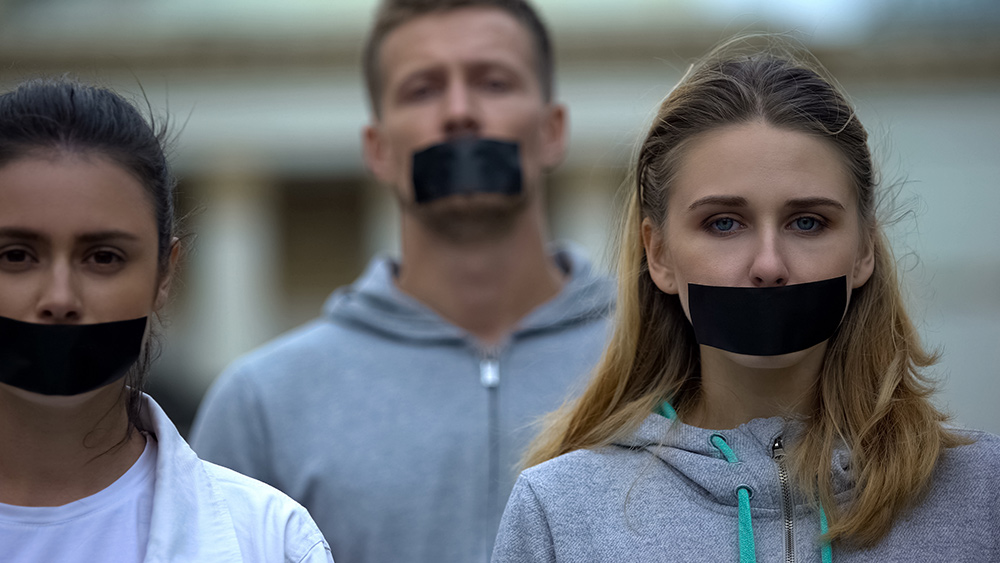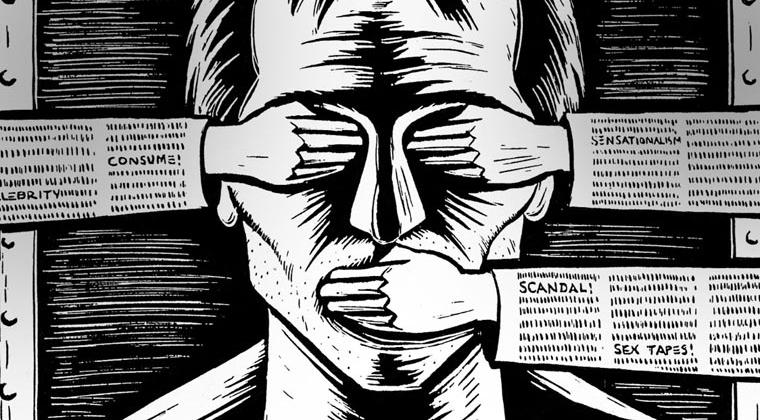Supreme Court issues unanimous ruling: American public can (sometimes) sue government officials who block them on social media
03/20/2024 / By Ethan Huff

In a unanimous ruling, the Supreme Court of the United States (SCOTUS) set a new precedent for free speech by declaring that, under certain circumstances, government officials can be sued for violating the First Amendment to the Constitution when they block critics on social media.
The ruling emerged from two separate cases, one in California and the other in Michigan. Both dealt with public officials who blocked critics online, which prosecutors argued is a violation of free speech. SCOTUS handled them both, ruling that government actors acting within the scope of their office are not allowed to silence people online simply for disagreeing with them.
The Supreme Court said that in order for a government official to be deemed as acting within his or her office as opposed to behaving online as a private individual, he or she must have “actual authority to speak on behalf of the state on a particular matter.” In such cases, government actors are “purporting to exercise that authority in the relevant posts,” and are thus not allowed to block dissenters.
Plaintiffs in both the Michigan and California cases say they were barred from engaging with local officials’ social media accounts due to critical comments they shared in response to politicians’ posts.
You can view a copy of the SCOTUS opinion at this link.
(Related: In a bad move from earlier this year, the Supreme Court nullified all lawsuits against the Biden regime over damage caused by Wuhan coronavirus [COVID-19] “vaccines.”)
Government officials can’t just block constituents they don’t like
The first time SCOTUS looked at the issue of free speech in correlation to government actors engaging with the public on social media occurred in 2021 and involved former President Donald Trump, who had been blocking critics on Twitter, now known as X.
At the time, the Supreme Court did not resolve the issue because Trump’s presidency ended not long thereafter, rendering it moot. Then these state-level cases emerged that were dismissed in lower court rulings but appealed all the way up to the highest court in the land.
Both state-level cases were First Amendment rights infringement cases, the California one involving two Poway public school board trustees, Michelle O’Connor-Ratcliff and T.J. Zane who were sued by parents whom they blocked on social media platforms, including Facebook, for posting critical comments.
“A federal judge and the 9th U.S. Circuit Court of Appeals both found that the trustees violated the parents’ First Amendment rights,” Reclaim the Net reported.
In the Michigan case, City Manager James Freed blocked resident Kevin Lindke from his public Facebook page after Lindke posted critical comments about the way the city handled the Wuhan coronavirus (COVID-19) “pandemic.”
“While a federal judge and the 6th U.S. Circuit Court of Appeals initially sided with Freed, the Supreme Court’s decision now casts these rulings in a new light,” Reclaim the Net reported about that case.
A significant precedent has now been set for free speech rights on social media. No longer can government officials acting within the capacity of their office and speaking on behalf of the state silence people who criticize what they share.
“This decision introduces a critical test for assessing whether officials are acting within their governmental capacity when they silence online dissent,” Reclaim the Net reiterated.
Justice Amy Coney Barrett, writing for the court, said that officials who use their personal accounts to make official statements may not be free to delete critical comments, nor can they block their critics.
More related news can be found at BigGovernment.news.
Sources for this article include:
Submit a correction >>
Tagged Under:
banned, big government, Censorship, cyber war, First Amendment, freedom, Glitch, Liberty, progress, scotus, Social media, speech police, Suppressed, Supreme Court, thought police, Tyranny
This article may contain statements that reflect the opinion of the author
RECENT NEWS & ARTICLES
COPYRIGHT © 2017 THOUGHTPOLICE.NEWS
All content posted on this site is protected under Free Speech. ThoughtPolice.news is not responsible for content written by contributing authors. The information on this site is provided for educational and entertainment purposes only. It is not intended as a substitute for professional advice of any kind. ThoughtPolice.news assumes no responsibility for the use or misuse of this material. All trademarks, registered trademarks and service marks mentioned on this site are the property of their respective owners.




















